
It seems everywhere you turn, parents and professionals are discussing, concerned about, and asking questions about tongue and lip-ties. With so many opinions, objections, and success stories, it’s hard to cut through the noise. This evidence-based and clinically-informed presentation will clarify the real struggles and quality of life issues a restricted tongue or lip can impact. Dentists are well-positioned to screen for, diagnose, treat, or refer these patients with a team-based approach to manage these common conditions. A review of the relevant literature, clinical cases of all ages, diagnostic criteria, assessment techniques, treatment videos, and recommendations will be discussed in this comprehensive lecture. Dr. Baxter will share the knowledge, successes, and struggles from his practice and experience in treating thousands of patients with these conditions.
IBLCE Detailed Content Outline: (I, II, III, VI, VII)
The diagnosis of tongue tie can send parents reeling. This is especially true when they receive conflicting information from the pediatrician, various lactation consultants, nurses and other parents. In this age of instant information and social marketing, everyone seems to be an expert. What is a parent to do? Who does a parent trust? What is the right course of action? Using case studies from over 30 years in the field, Renee takes us through the tongue-tie journey from the evaluation through the myriad possible steps to successful breastfeeding. Assessment, release, bodywork, maintaining milk supply and keeping our lactating clients “in the game” until baby can breastfeed all present challenges to the practitioner. This is especially true since each dyad needs its own individualized plan that may morph frequently as treatment progresses. Join Renee as she takes you through the process of identification through resolution from the experience of her clients. She will also explore some cultural/regional differences and the challenges of working with families through the tongue-tie roller coaster.
IBLCE Content Outline: 1 L Cerp
Ankyloglossia occurs in at least 11% of babies 1. The modified Coryllos classification was used to describe tongue tie types and these were primarily subdivided into anterior and posterior. Frenotomy has been observed to improve milk transfer, maternal breast comfort and nipple pain, and reduce newborn feeding difficulties. In this presentation, Dr Sarah Bombell shares the results of her study to describe presentation timing and symptom differences amongst different age groups.
After this presentation, participants will be able to:
1 L Cerp IBLCE Content Outline:
A hotly debated topic among clinicians is post-frenectomy care. There are a few emerging theories and clinical practice ideas regarding frenectomy aftercare for the newborn. Clinicians and families sometimes struggle with the idea of how to balance efficient post-frenectomy care while minimizing stress and discomfort of the newborn. While the evidence strongly points to the benefit of frenectomy for tongue-tied neonates, there is little published evidence regarding best aftercare practices. This presentation will explore the lactation consultant’s role in supporting the family post-frenectomy. We will also discuss neonatal pain management strategies, the impact of stress on wound healing, and supportive strategies to optimize healing. This presentation will help provide a well-rounded view of strategies clinicians should consider when supporting families coping with post-frenectomy concerns.
1 L Cerp IBLCE Content Outline:
This presentation will look at new research into lingual frenulum restriction and its surgical release to achieve improvement in problems with reflux, breastfeeding and pain for the breastfeeding mother. I will also expand this into restrictive tethered oral tissues (lip-tie, buccal-tie) as a whole, as this was part of my published study into the laser surgical release of restrictive tethered oral tissues on breastfeeding and Gastroesophageal Reflux Disease (GERD). Learn more about the impact of surgical release (frenotomy) of tongue-tie, lip-tie, and buccal-tie on both reflux and breastfeeding outcomes for the classically recognised anterior tongue-tie and the less obvious (without functional assessment) posterior tongue-tie. Posterior tongue-tie was noted in 71% of the study cohort.
IBLCE Content Outline: 1 L Cerp
Parents are seeking answers to their baby’s feeding difficulties. They verbalize that they are confused and frustrated by conflicting and contradicting information and opinions they receive from the internet, social media, friends and healthcare providers. These families find themselves having to self-navigate this feeding and oral health journey for their baby. They are seeking guidance on how to understand differential and functional assessment of the baby’s ability to organize their suck, swallow and breath state as well as provide lactation support. Many want to rush into a procedure while others will run away at the mention of anything wrong. Understanding the process to identify the issue, lactation management and providing informed knowledge and techniques families can do with their babies, helps families feel empowered to make the best decisions on whether to proceed with a frenotomy or not. This program will include 2 case reviews of a family who chose to do the frenotomy and one who did not and how the pre and post-frenotomy support care assisted these decisions.
IBLCE Content Outline: 1 L Cerp
Given recent media releases about tongue tie treatment, it is prudent to examine our experiences and find a transparent way forward to ensure breastfeeding dyads who can benefit from a tongue tie release have access to this treatment and protect against unnecessary procedures being performed. We need to be transparent in our assessment, treatment outcomes and long-term follow-up and continue to learn from shared experiences.
After this presentation, participants will be able to:
IBLCE Content Outline: 1 L Cerp
The management of tongue tie has many approaches. In this presentation, we will explore the anatomy and physiology of normal tongue frenulae and that of ankyloglossia. How the structures affect function and how to manage them to optimise function. We will also discuss the problems that can be seen following incomplete release and reattachment. We will also cover complications during surgery and management options.
IBLCE Content Outline: 1 L Cerp
Tongue tie and its treatment is still controversial, partially because objective selection of infants for frenotomy is lacking. Our research collaborative assessed the organisation of tongue movements in space and time using ultrasound during breastfeeding in infants with tongue-tie and other conditions that impact feeding efficiency. This talk shares some of Cathy’s published (Genna, 2021) and not yet published results, in the context of individualized care for dyads. Ultrasound is a useful tool in our quest to understand both normal sucking and breastfeeding impairments. Research depends on both accurate classification of subjects and breastfeeding best practices. This talk presents findings from our studies of tongue kinematics during breastfeeding using an objective methodology, highlighting some important considerations when conducting or assessing research.
IBLCE Content Outline: 1 L Cerp

Yvonne LeFort
Dr Yvonne LeFort, a family medicine doctor trained in Canada, has practised breastfeeding medicine for over 20 years and runs a private breastfeeding clinic in Auckland, New Zealand. She is the first author of the ABM’s Position Statement on Ankyloglossia and Breastfeeding Dyads 2021, a contributor to New Zealand Aotearoa National Guidance for the Assessment, Diagnosis and Surgical Treatment of Tongue-Tie in Breastfeeding Neonates and a co-author of Complications and Misdiagnoses Associated with Infant Frenotomy: Results of a Healthcare Professional Survey (International Breastfeeding Journal 2022.) along with several other clinical protocols.

Catherine Watson Genna
Catherine Watson Genna is an IBCLC in private practice in New York City since 1992. She loves to teach, locally mentoring clinical interns and traveling to educate healthcare professionals around the world on assisting breastfeeding babies with anatomical, genetic or neurological problems. Catherine collaborates with Columbia University and Tel Aviv University Departments of Biomedical Engineering on research projects investigating the biomechanics of the lactating nipple and various aspects of sucking and swallowing in breastfeeding infants. She is the author of Selecting and Using Breastfeeding Tools: Improving Care and Outcomes and Supporting Sucking Skills in Breastfeeding Infants as well as professional journal articles and chapters in the Core Curriculum for Lactation Consultant Practice and Breastfeeding and Human Lactation.
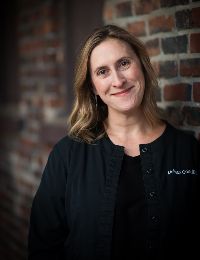
Melissa Cole
Melissa Cole is a board-certified lactation consultant, neonatal oral-motor assessment professional and clinical herbalist in private practice. Melissa is passionate about providing comprehensive, holistic lactation support and improving the level of clinical lactation skills for health professionals. She enjoys researching and writing, especially on topics such tongue tie and botanical medicine. Her bachelor’s degree is in maternal/child health and lactation and her master’s degree is in therapeutic herbalism. Before pursuing her current path, Melissa’s background was in education and cultural arts, which has served her well in her work as a lactation consultant and healthcare educator. She loves living, working and playing in the beautiful Pacific Northwest with her 3 children.

Renee Beebe
Renee Beebe has been working in the field of lactation, since the birth of her first child in 1990, as a La Leche League leader, postpartum doula and IBCLC. She draws from her background in education and child development every time she works with a breastfeeding dyad. Since becoming certified as an IBCLC in 1997, Renee has supported families through home, hospital and clinic visits, drop-in groups in the Seattle area and phone and telehealth consultations internationally. She has spoken for GOLD Lactation, ICAP, The LCinPP conference, and USLCA and CLCA. Renee has assisted with over 2000 frenotomies with scissor and laser release providers. She understands how confusing the issue of tongue tie can be for families.
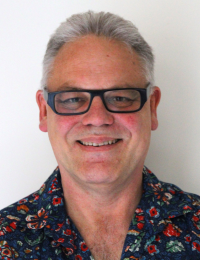
Philip Hand
Dr Philip Hand practices in Melbourne, Australia. His certifications include BDS (Otago N.Z.), FICCDE LA&HA Master in Laser Dentistry (Slovenia), MSc Laser Dentistry (UCSC – Rome). He is the secretary of the International Academy of Innovative Dentistry (IAID) and a visiting professor at UCSC-Rome. Dr. Hand is interested and practices in all fields of general dentistry. These include Implant Dentistry, Endodontics, Periodontics and Orthodontics (POS Graduate). He is a devoted proponent of the use of the dental microscope and dental lasers. He is passionate about tackling the issues and treatment for infant feeding both breast and bottle, airway health and growth and sleep from a dental perspective. He works collaboratively with lactation consultants, maternal health nurses, paediatricians, paediatric osteopaths and chiropractors in the treatment of infants in this pursuit and is actively involved in teaching the importance of this treatment for our patients from infants to adults.
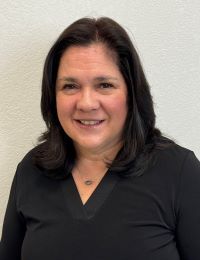
Annette Leary
Annette has been a maternal child health registered nurse for over 36 years. She took her first IBCLC exam in 1995. She started her craniosacral therapy Upledger training in 2015, and continues taking advanced classes yearly as well as serving as a teacher’s assistant. She owns two businesses, Orlando Lactation and Wellness Services and a partner business owner of Baby BLISS: Central Florida Feeding Collaborative. She enjoys working with families, earning their trust and teaching them how to latch onto parenting through feeding and educational support.
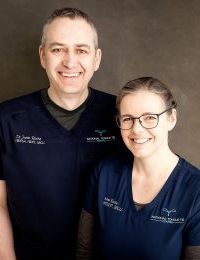
Kate and Justin Roche
Justin Roche MB ChB, FRCPCH, FRCPI(Paeds), IBCLC(receertifying)
Justin is a consultant paediatrician and has over 15 years experience in the field of tongue-tie. Together with Kate Roche, he has founded the National Tongue Tie Centre in Ireland which provides multidisciplinary care to those with tongue tie of all ages including functional frenuloplasty for infants and children from 3 months old.
Kate Roche BSc (Physiotherapy), MISCP, IBCLC
Kate is the clinical director at the National Tongue Tie Centre in Ireland and leads a team of therapists and lactation consultants to provide the highest quality of rehabilitative care to infants, children and adults with oral dysfunction. She is a chartered physiotherapist, IBCLC and paediatric feeding therapist. Having trained at the University of Liverpool, she worked in both Leeds and Southampton, where she led and delivered the regional neonatal service for pre-term and high-risk infants, before moving to Ireland. Kate has travelled many times over the years, mainly to the USA, to complete further training in Feeding Therapy, Orofacial Myofunctional Therapy and Craniosacral Therapy, and now lectures internationally.
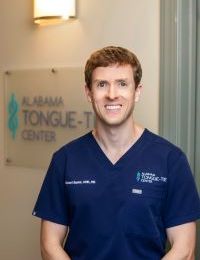
Richard Baxter
Dr Richard Baxter is a board-certified pediatric dentist, Fellow of the AAPD, and Diplomate of the American Board of Laser Surgery. He is an internationally recognised speaker on tongue-tie, instructor of the acclaimed online course Tongue-Tied Academy, and lead author of the bestselling book Tongue-Tied: How a Tiny String Under the Tongue Impacts Nursing, Speech, Feeding, and More. He is passionate about educating parents and healthcare providers about the effects a tongue-tie can have throughout the lifespan. He is the founder of the Alabama Tongue-Tie Center where he uses the CO2 laser to release oral restrictions. He had a tongue-tie himself, and all of his three girls were treated as infants, so this field is a personal one.
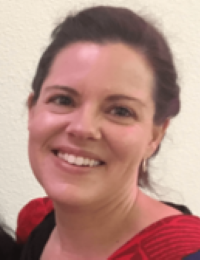
Sarah Bombell
Sarah is a GP obstetrician and lactation consultant who works in the field of breastfeeding medicine. Sarah completed her medical degree at The Australian National University. She gained her advanced diploma in obstetrics and gynaecology and her fellowship as a general practitioner. She became an IBCLC in 2008. Sarah is passionate about breastfeeding education and training and provides mentorship to those training in the field. She is also the secretary of the Breastfeeding Medicine Network Australia/NZ Board.